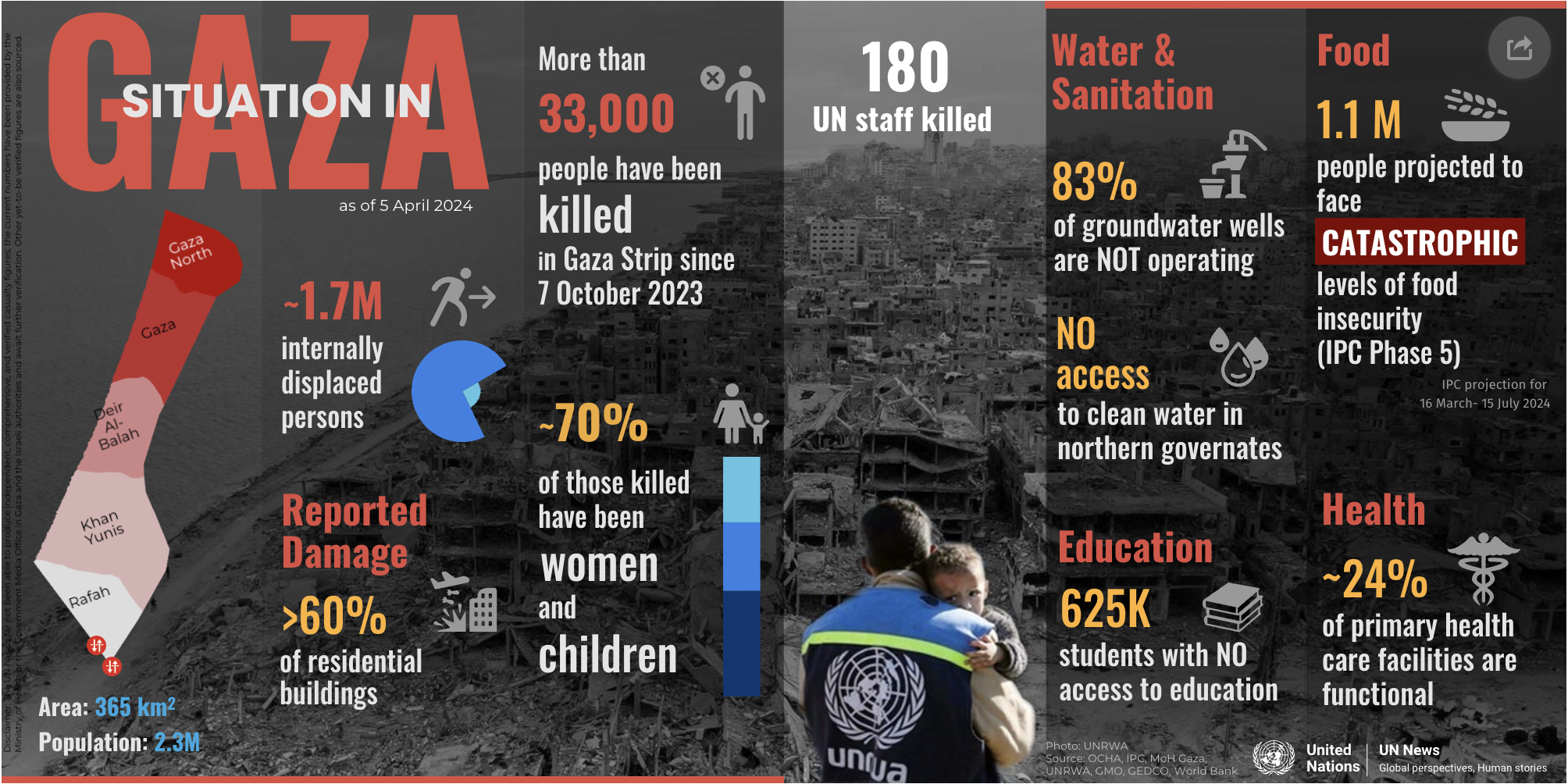
By Hannah Lee
Rafah, a city located in the Southern Gaza Strip, housed about 1.4 million displaced Palestinians as of February. Rafah is only about 25.5 square miles, and the average density was about 22,200 people per 0.38 square miles. Tacoma’s population density is about 4,412.2 people per square mile according to the 2020 census. Rafah’s population density is five times what it normally is. However, after recent bombings of Rafah by the Israeli Defense Forces (IDF), those numbers are no longer accurate as the death toll rises and people are continually displaced.
The overcrowding is a result of relocation orders given by the IDF as part of the continued genocide of Palestinians in Gaza. Months of hostility and destruction of residential areas have forced many people into Rafah, and many more continue to remain displaced. There are estimates that 1.7 million Palestinians are displaced, and there are reports of families that have been displaced five or six different times. Israel did declare some of these relocation areas as ‘safe zones’ but has repeatedly bombed such areas.
According to the Norwegian Refugee Council, those living in Rafah are unlikely to have access to drinking water, showers, or personal hygiene items. Diseases such as Hepatitis A, gastroenteritis, diarrhea, lice and influenza run rampant as a result of overcrowding and lack of resources.
The lack of resources can be attributed to Israel blocking the distribution of humanitarian aid. Israeli forces have even attacked humanitarian aid workers and their infrastructure. Videos of Israeli citizens blocking aid trucks waiting to enter Palestine circulated on social media earlier this year. In these videos, viewers can see Israeli families camping in front of the trucks, posing with their children in front of them. These protestors claim that they are blocking aid to Gaza and Rafah until Hamas frees their hostages. Only a limited number of aid trucks have been allowed to deliver food, medical, and hygiene supplies to Palestinians, which is not sufficient to meet their needs, pushing Gaza into famine.
The Israeli military has also targeted aid workers in Palestine. Workers for World Central Kitchen (WCK), which prepares and serves fresh, nourishing meals to communities during humanitarian crises, were attacked in Gaza by an Israeli air strike on April 1; seven were killed. The IDF publicly stated that the attack on the WCK truck was accidental. However, because aid workers specifically coordinate with the IDF, this attack is considered by many to be deliberate. The IDF has also attacked a UN aid warehouse in Rafah, killing 180 workers.WCK and other aid organizations have since paused operations in Palestine because of the attacks.
The limited amount of food, medical supplies, and hygiene supplies have led to famine and increased levels of infection. Currently, it is not uncommon for families in Palestine to go without food, and when they are able to eat, to only consume about 200-300 calories per person per day, according to news source Al Jazeera. It is also a risk for Palestinians to get food – there have been airdrops of badly needed aid from numerous countries, but many have been killed trying to retrieve them. Palestinians getting food have been targeted and gunned down by Israeli forces, fatally struck by the boxes, or have drowned trying to retrieve boxes from the sea.
